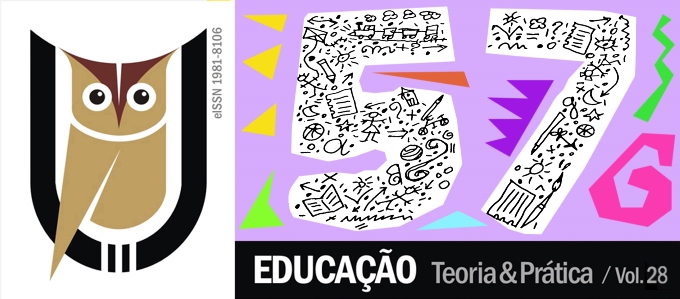THE CURRICULAR PROPOSAL OF THE STATE OF SÃO PAULO: THE PERSPECTIVE OF PHYSICAL EDUCATION TEACHERS
DOI:
https://doi.org/10.18675/1981-8106.vol28.n57.p111-130Abstract
The objective of the study was to understand how Physical Education teachers of the state schools of city São Carlos are appropriating of Curricular Pedagogical Proposal of Teaching of the State of São Paulo (PPC) in their pedagogical practice, with the perspective of apprehend the difficulties and possibilities for its proper enforcement. The study included 5 Physical Education teachers working in public schools in the city of São Carlos / SP. The data collection instrument was unstructured interview and the analysis was based on the theme -category analysis method. Participating teachers said that the PPC is an important document because it indicates a way forward in their classes. But do not feel able to use this proposal as a whole, by the lack of material, for the poor quality materials available in schools , inadequate physical space, uncertainty regarding certain contents with which have no familiarity, for the temporal organization of content in ‘bimestre’ (two months) and difficulty in addressing other content not included in the proposal. In general, teachers consider the PPC Physical Education as a positive document in the area of physical education school more still needs further discussion of its deployment. Keywords: Physical Education. Curriculum Pedagogical Proposal. School.Additional Files
Published
How to Cite
Issue
Section
License
Authors who publish in this journal agree to the following terms:
a) Authors assign copyright to the journal, with the work simultaneously licensed under the Creative Commons Attribution License that allows sharing of the work with acknowledgment of authorship and publication in this journal.
b) The policy adopted by the Editorial Committee is to assign copyright only after a period of 30 months from the date of publication of the article. After this time, authors interested in publishing the same text in another work must send a letter to the Editorial Committee requesting the release of the assignment of copyright and wait for a response.
c) This journal provides public access to all its content, since this allows greater visibility and reach of published articles and reviews. For more information on this approach, visit the Public Knowledge Project, a project that developed this system to improve the academic and public quality of research, by distributing OJS as well as other software to support the public access publication system to academic sources. The names and email addresses on this website will be used exclusively for the purposes of the journal and will not be available for other purposes. This journal provides open any other party  This work is licensed under a Creative Commons License
This work is licensed under a Creative Commons License











